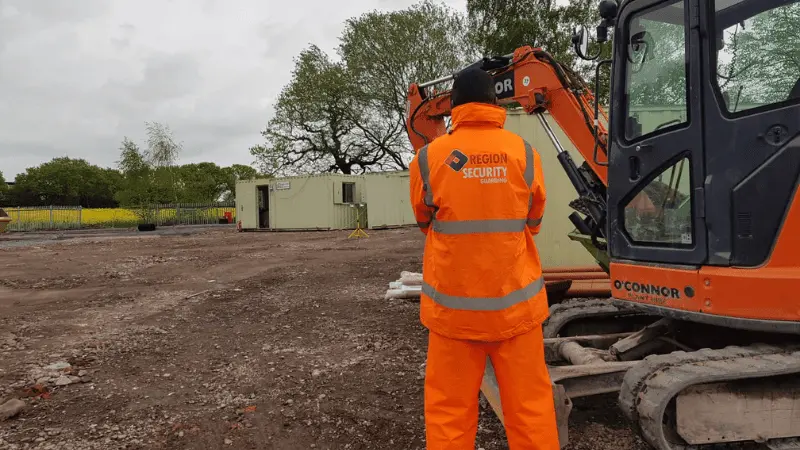Youth Crime is described as participation in illegal behaviours by minors. These crimes are usually dealt with quickly and courses are provided to prevent re-offending. In this article, we will be discussing why youth crime is a problem, the factors that contribute to it, and how to prevent it.
Why Is Youth Crime a Problem?
In recent years we have seen an increased number of youth cautions for crimes such as robbery, violence, and possession of weapons. This is a problem because committing crimes at a young age will greatly impact the future of youths in terms of education, career, and quality of life. As well as impacting their own lives, the victims of these crimes are usually innocent and often suffer the consequences of their actions which could potentially be life-changing.
The criminal justice system treats young people differently from adults. The age of criminal responsibility in both England and Wales is 10 years old, meaning children aged between 10 and 17 can be arrested if they commit crimes.
What Are the Types of Youth Crime?
Youths often commit similar crimes to those of adults, but offences such as criminal damage and theft are commonly made by youths. So, what are the different types of crime?
1. Theft
Theft crimes are described as taking property belonging to another and permanently depriving them of it. This can include shoplifting, fraud, car theft, and robbery.
2. Assault
Assault crimes are described as inflicting harm on another person. This can include common assault, GBH, unlawful wounding, and sexual assault.
3. Drug Abuse
Drug abuse crimes are described as the habitual taking of illegal drugs. This act usually involves crimes such as theft of drugs, drug trafficking, drug sales, and drug manufacturing.
4. Criminal Damage
Criminal damage is described as unlawfully damaging property that belongs to another. Examples of this include graffiti, arson, and forced entry.
6. Possession of Weapons
Illegally carrying weapons such as knives or guns can result in arrest and prosecution. This is because you may be intending on using the weapon in public areas which poses a threat to others.

What Factors Contribute to Youth Crime?
Before we consider how to prevent youth crime, it is important to understand the factors which contribute to it. There is not a singular reason why young people commit crimes, but it is usually due to their surroundings both at home and school.
1. Education
In some cases, youths will turn to crime due to their level of education. Those who are failing to meet grades or improve on their education may tend to give up on trying to improve their work and turn to acts of crime instead.
2. Peer Pressure
Students surrounded by those who actively commit crimes may feel the need to ‘fit in with the crowd’. To keep their friends, youths may be peer pressured into committing a crime. This can be hard to resist due to the fear of being bullied or lonely at school.
3. Abuse
Youth crime does not always emerge from being at school. It is believed that the environment youths grow up in can have an impact on their likeliness to commit crimes. For example, those who suffer abuse from family relations can develop negative self-esteem and is unlikely to care about their wellbeing.
4. Financial Issues
Growing up in poverty means you may be given fewer opportunities in life in terms of education, job opportunities, and travel. Those who are denied these opportunities can feel the need to rebel to get what they want. For example, those in need of money may consider stealing it from others.
5. Media
Those who actively engage with violent media on games or film could be more likely to show signs of aggressive and violent behaviour. Although data reveals that the effects of violent media are small, it still exists and can negatively influence younger people.
Is Youth Crime Increasing In the UK?
From April 2019 to March 2020, Youth Justice Statistics recorded a total of 19,000 children either cautioned or sentenced. This is a 12% fall from the year before which indicates that there has been a decrease in the total number of youth crimes.
Trends also show that there was 11,100 first-time entrant to the Youth Justice System, another 12% decrease from the year before.
So, what can we learn from crime rates in the UK? These statistics indicate that more needs to be done to prevent previous offenders from recommitting crimes after leaving the Youth Justice System.
Despite this, there is a clear negative correlation between youth crime rates. The number of arrests of children has decreased significantly, with around 220,000 arrests in 2010 compared to just 51,000 in 2020.

Source: Youth Justice Statistics
How to Stop Youth Crime
There is no way that can completely stop youth crime. However, there are actions that can be taken to prevent it.
The most influential people in a child’s life are their parents, they are less likely to commit crimes if their parents offer a good influence and build a trusting relationship with their children. This includes agreeing on rules, being able to talk through problems, and supporting each other.
Schools also have an important role to play when it comes to the behaviour of children. Teachers can build good relationships with their students and enable them to feel comfortable with openly talking to them and feel encouraged to attend school.
As well as this, there are prevention programmes within local communities that have been designed to keep young people away from crime. They can be placed on a programme if they have been in trouble with the police, involved in anti-social behaviour, or if there are feared to commit a crime.
Despite this, it is often wondered if crime can be eliminated or not, with the help of others it is hoped that there will be a lower percentage of youths recommitting crimes in future years.
What are your opinions on youth crime? Feel free to discuss this in the comments below!
Related Articles
What Is Violent Crime?
One of the most common crimes within the UK is violent crime offences but what is violent crime really? In this article, we define what violent crime is, discuss whether violent crime in the UK is increasing, and explain how we can prevent violent crime.
Top 10 Most Dangerous Areas in England and Wales
There are exactly 70 counties between both countries and in this article, we will be going over the top 10 most dangerous areas in England and Wales.
What Is the Police, Crime, Sentencing, and Courts Bill?
What Is the Police, Crime, Sentencing, and Courts Bill? In this article, we will discuss what it is, who introduced it, the protests that followed, and whether or not the bill was passed.
Gun Crime In The UK
While the UK is one of the safest countries in the world when it comes to gun related crimes, it does still happen throughout the country.
Knife Crime In The UK
Knife crime has seen a dramatic increase here in the UK since 2012, with almost 41,000 offenses…
What Are the Different Types of Crime?
There are many different types of crime that take place in the UK, but do you know what they are?
Can Crime Be Eliminated?
A common question that is asked is “what does crime mean?”. A crime is defined as a deliberate act that causes physical or psychological harm, damage to or loss of property, and is against the law. Whilst that is the definition crime as a concept is very difficult to pin down to have one specific meaning.
Do Security Guards Reduce Crime?
Crime is a huge worry and threat for many businesses, and it often seems impossible to escape from. Crime rates in the UK seem to be on the rise. According to Statista, there were at least 93.6 crimes reported per 1,000 people. With these shocking figures, it’s no wonder that many businesses are looking for security protection such as guards to protect their sites or property.
Knife Crime Is Rapidly Increasing; 4 Tips on How to Stay Safe in 2024
UK’s Knife Crime In March 2019, knife crime in the UK reached a decade high; the ONS has revealed that recordings of crimes involving sharp instruments













